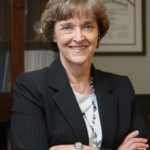By Dr. Judith Monroe, President & CEO of the CDC Foundation
TFN’s Philanthropic Preparedness, Resiliency and Emergency Partnership (PPREP) recently held a convening in Oklahoma City, Okla., for the members of the PPREP learning cohort to explore the ways public policy and public organizations influence disaster readiness and recovery and hear from leading voices in the public policy arena. Among the participants in the convening was Dr. Judith Monroe, president and CEO of the CDC Foundation, who joined representatives from FEMA, the USDA and the the U.S. Small Business Administration on a panel addressing how public policy impacts federal agencies.
When you’re in the middle of an emergency, it’s not the time to exchange business cards. That advice, which I’ve heard many times, seemed particularly relevant at a regional Philanthropic Preparedness, Resiliency and Emergency Partnership (PPREP) meeting in early November.
At the event facilitated by the Funders’ Network for Smart Growth and Livable Communities and the Center for Disaster Philanthropy with support by the Margaret A. Cargill Philanthropies, I was honored to serve as a panelist, and fascinated by the strong relationships and thoughtful dialogue among the learning cohort of community foundations and grantmakers from the ten-state Midwest region.
It seemed particularly fitting that this meeting took place in Oklahoma City, one of the top U.S. areas for tornadoes, which we learned more about on a visit to Oklahoma’s National Weather Center. There, researchers leverage predictive analysis tools and techniques to improve forecasting for dangerous weather events to protect us all.
In terms of health protection, the Centers for Disease Control and Prevention (CDC) plays a crucial role in supporting state and local partners to help communities prepare for any health crisis, whether chronic or acute, natural or manmade. And although I served in a leadership role with CDC for six years and have interacted with CDC from a number of angles over the course of my career, at the meeting I was representing the congressionally-created independent CDC Foundation.
People often ask me why a large agency like CDC needs a foundation. The reality is that for any federal agency, even during emergencies, there are challenges with federal dollars tied to appropriations and restrictions that can limit the ability to act quickly. Immediate, flexible resources can fill gaps to enhance the implementation of policies and to save and protect lives during times of crisis. In our 23-year history of managing approximately 1,000 CDC-led programs, we have learned that strong relationships and partnerships are crucial to helping CDC tackle some of the world’s toughest health challenges at home and abroad.
As just one example, following the devastating 2017 hurricanes, the CDC Foundation served as an integral partner to CDC, the Puerto Rico Department of Health and the U.S. Virgin Islands Department of Health in implementing response and recovery activities aimed at shoring up and restarting critical public health infrastructure.
We worked with CDC to carry out a territory-wide vaccination campaign in Puerto Rico for more than 110,000 people; restored partial lab capacity at the Puerto Rico Department of Public Health by shipping over 3,200 lab specimens to CDC for partial testing; supported over 300 displaced people from the U.S. Virgin Islands who sought medical treatment in the Southeastern United States by addressing requests for travel support, over-the-counter medicine and transportation to treatment; and funded construction of a mobile clinic to deliver much-needed vaccines, health screenings and clinical services to the residents of U.S. Virgin Islands.
These are just a few instances of support for CDC that would not be possible without our philanthropic and private-sector partners.
And while the Foundation’s tagline is “together our impact is greater,” that statement is much more to us than a tagline. Each day, in the hundreds of programs we manage domestically and globally, we strive to live out that statement because we strongly believe people, groups and organizations have a greater positive impact and can accomplish more together.
The collaborative mindset that we apply in our work is also front and center among my Midwest colleagues, who clearly have a deep understanding of challenges in their region—and are committed to working together on an ongoing basis to create stronger, more resilient communities in the wake of disasters.
About the Author
 Judith Monroe, MD, is president and CEO of the CDC Foundation. Over her career, Monroe’s professional focus has centered on the intersection of primary care and public health. Prior to joining CDC in 2016, Dr. Monroe served as director of CDC’s Office for State, Tribal, Local and Territorial Support for six years, and also previously served as state health commissioner for Indiana from 2005 to 2010. She was president of the Association of State and Territorial Health Officials from 2008 to 2009 and has served on numerous national advisory committees and boards.
Judith Monroe, MD, is president and CEO of the CDC Foundation. Over her career, Monroe’s professional focus has centered on the intersection of primary care and public health. Prior to joining CDC in 2016, Dr. Monroe served as director of CDC’s Office for State, Tribal, Local and Territorial Support for six years, and also previously served as state health commissioner for Indiana from 2005 to 2010. She was president of the Association of State and Territorial Health Officials from 2008 to 2009 and has served on numerous national advisory committees and boards.
